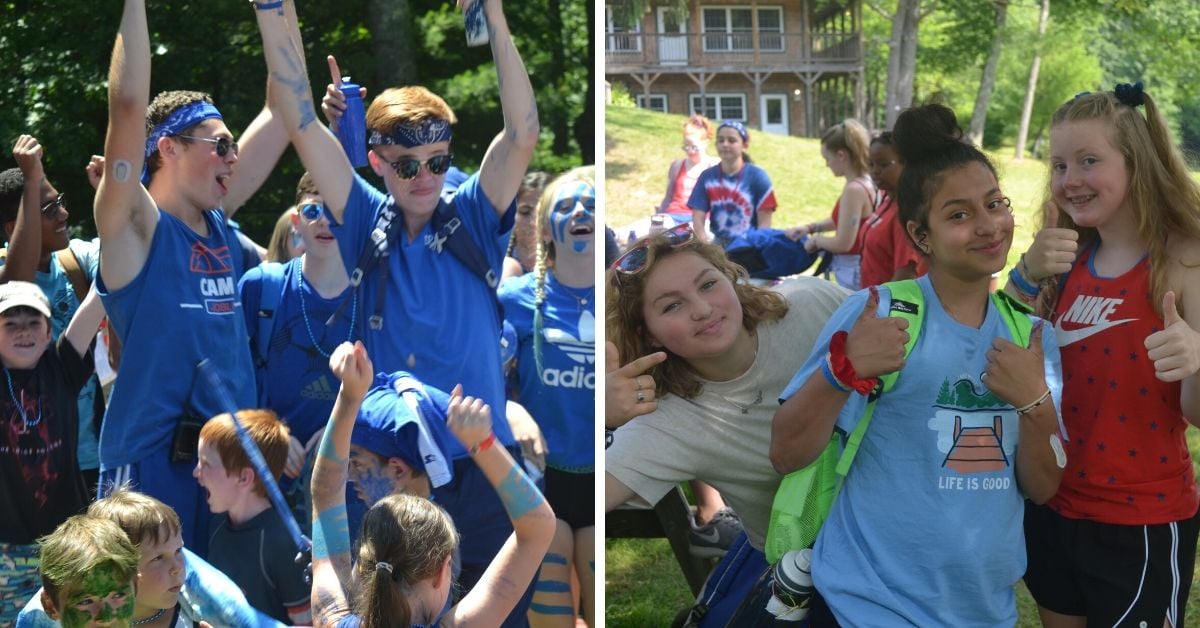Research Study Compared Blood Sugar Control and Treatment Satisfaction Between Diabetes Camp Week and Home
Date Posted: Thursday, July 01, 2021
Amy Darukhanavala, MD, a pediatric endocrinologist at UMass Memorial’s Children’s Medical Center, led a study comparing the success of continuous glucose monitoring (CGM) between diabetes summer camp and while children were at home prior to camp. She analyzed blood sugar data and quality of life, based on how the young people said they felt about their diabetes in both settings.
Dr. Daru (as she’s known to her patients) has served as a Medical Director at the Barton Center camps in Central Massachusetts for children living with diabetes since 2017. She splits her weeks between the Clara Barton Camp for girls in North Oxford, MA, and Camp Joslin for boys in Charlton, MA.
She presented data from the study published in Endocrinology, Diabetes & Metabilism, at the American Diabetes Association’s annual Scientific Sessions.
“Studies of this nature were lacking,” said Dr. Darukhanavala. “We were interested in comparing CGM success by reviewing data from the week before camp, as well as for a week during camp. But also, by asking the kids how they were feeling during both situations.”
Previous studies have shown an association with camp attendance and improvements in A1c, as well as with quality of life. However, few studies have examined the differences between glucose control at home compared with camp.

Logistics of the Study
All participants in the study, ages 6 to 17, were provided with new Dexcom CGMs and a journal, to collect both quantitative and qualitative data. A week prior to leaving for camp, the families received the CGM to wear at home leading up to camp week. “Some of these young people had never used a CGM before,” added Dr. Darukhanavala.
During that week at home, the children wrote in their journal to document and explain any major events they experienced, such as extreme hypoglycemia, ketones or diabetic ketoacidosis (D.K.A.).
When they arrived at camp, the participants completed a questionnaire about how they felt about their diabetes and their self-management during the past week while at home. They also received another new Dexcom sensor, to wear during the week they attended camp. At the end of camp week, they completed the same questionnaire once again, to compare how they felt during both weeks.
Resulting Data: Home Week vs. Diabetes Camp
The resulting data indicated that diabetes camp was associated with significant blood sugar improvements in terms of time in range, compared to home care. Campers also used less insulin and described feeling better about their diabetes management while attending camp. This suggests medical diabetes camps are excellent resources to promote diabetes education, provide psychosocial support, and encourage potential better long-term care for children living with Type 1 diabetes.
“I think the biggest reason is that their activity level is higher at camp than it is at home,” said Dr. Darukhanavala. “They’re moving around and burning glucose all day, so we would expect their time in range to be significantly higher.”
Camp also provides additional structure, with designated meal and snack times, as well as more frequent blood sugar checks.
“The kids don’t have access to food all day like they do at home,” she added. “Blood sugars are also checked overnight at camp. More frequent checks allow campers and staff to address and treat issues immediately, probably faster than most people do at home.” She also pointed out how medical diabetes camps provide a group mentality, where everyone looks out for each other.
Many of the young UMass Memorial patients who have been recognized in recent years on our Diabetes Center of Excellence Wall of Honor have mentioned diabetes camp as an important part of their lives. Sophie Lennon attended Clara Barton Camp for five years, and also spent one summer as a counselor-in-training (CIT). “At first I wasn’t sure if I’d like camp…but it’s the best thing I ever did.” Now as a young adult, Sophie still keeps in touch with her “camp community.”
Videos and Resources for Families of Children Living with with Diabetes
The UMass Memorial Diabetes Center of Excellence offers information and resources for children and families affected by diabetes. View our educational videos and learn more at


